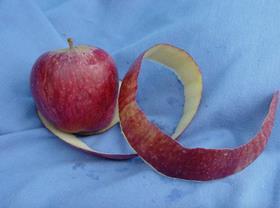
In times of uncertainty people turn to tried and trusted things. Now, with the world scrambling to deal with the effects of the coronavirus, consumers are increasingly turning to healthy ways of eating and living in order to build up resistance.
There are indications that consumption of all fruit, particularly the commodity ranges such as apples, pears and bananas, have increased over the past month. Sources say that these ranges may well be making a comeback versus the more fashionable fruit types which have grown substantially in recent times. This, say some industry leaders, is specifically because consumers, in uncertain times, go back to what they know best.
Spanish experts have been singing the praises of their citrus fruit in providing vital vitimins that build resistance to colds and viruses. South African citrus sources say it is common knowlege that citrus fruit provides lots of vitimim C – which is vital to building resistance.
The sharon fruit season has just started and the industry also claims that its fruit contains many health-giving benefits, including lowering the risk of heart and blood vessel diseases.
There may be many others who also claim something exceptional when it comes to their fruit.
However, it is perhaps the trusty apple that may bring the greatest hope in the fight against Covid-19. According to leading South African apple exporter, Tru-Cape Fruit Marketing, there is lots one can do to stay well that doesn’t involve any special equipment or costly ingredients.
People around the world, denied their normal routine of exercising outdoors, have shown great resiliance by doing physical exercises in their own homes. Others have joined online workouts such as 'Jeff Together', uniting people from across the world for workouts every morning.
In addition to this, eating more apples may be a good idea. In South Africa apples now come fresh from the tree and there are plenty around for those who look for them.
“Did you know that apples have been found to be one of the best sources of dietary polyphenols?” asks Tru-Cape Fruit Marketing. “Numerous studies have shown that antioxidants in apples are effective. In a Canadian study, published by Nova Science Publishers, authors HP Vasantha Rupasinghe, Surangi Thilakarathna and Sandhya Nair, it is found that the polyphenols found in apples are effective antioxidants. It is demonstrated to have numerous biological effects in the prevention of various cancers and neurodegeneratives as well as to protect against diabetes and other diseases.”
The study shows that apple peels in particular are high in quercetin glycosides. They go on to say that quercetin is recognised as a ‘free-radical scavenger’ – a scavenger of the nicest kind.
Tru-Cape Fruit Marketing also refers to the book An Apple A Day, by Dr Joe Schwarecz, Director of the McGill Office for Science and Society at McGill University in Montreal, Canada. Dr Schwarecz says the current interest in quercetin, however, has nothing to do with its antioxidant activity.
“Researchers have been applying computer modelling techniques to identify molecules with structures that could conceivably block the ‘ACE2 receptors’ on cells to which the coronavirus that causes Covid-19 attaches, much like a key fits into a lock.
“Once the virus enters a cell it hijacks the cellular machinery and uses it to reproduce and crank out more viruses,' he continues. 'Based on its molecular structure, quercetin could be a ‘key’ that fits the lock and blocks other ‘keys’”.
He states further that there is actually some laboratory evidence that this can happen. “After the SARS epidemic, a couple of studies did show that quercetin could block entry of that particular virus into cells. However, that was an 'in vitro’ experiment and involved a virus that is different from the one that causes Covid-19, albeit it is in the coronavirus family.
“Without further studies, we can’t assume that quercetin will also block SARS-CoV-2,” he says, adding that a clinical trial is needed.
At this point, all one can say is that quercetin has the possibility of being useful, Schwarecz outlines. Since it occurs in nature, it is regulated as a 'Natural Health Product'. Dietary supplements have long been available, hyped for their antioxidant potential, usually in daily doses of 500-1000 mgs. The daily intake from our diet, in general, is less than 100 mgs, but quercetin supplements have not been linked with any adverse reaction. 'Although the information about possible efficacy is sketchy, at least taking quercetin supplements is not harmful,” he ends.
Writing in the Nutrition Journal, authors Jeanelle Boyer and Rui Hai Liu say that some of the best studied antioxidant compounds in apples include quercetin-3-galactoside, quercetin-3-glu- coside, quercetin-3-rhamnoside, catechin, epicatechin, procyanidin, cyanidin-3-galactoside, coumaric acid, chlorogenic acid, gallic acid, and phloridzin.
“Researchers have examined the average concentrations of the major phenolic compounds in six cultivars of apples,' the authors outline. 'They found that the average phenolic concentrations among the six cultivars were: quercetin glycosides, 13.2 mg/100 g fruit; vitamin C, 12.8 mg/100 g fruit; procyanidin B, 9.35 mg/100 g fruit; chlorogenic acid, 9.02 mg/100 g fruit; epicatechin, 8.65 mg/100 g fruit; and phloretin glycosides, 5.59 mg/100 g fruit.”
Tru-Cape Fruit Marketing says although one has to be careful about making health claims about your products, the bottom line is that there are proven health benefits to eating more apples and pears every day.
“In the current fight against Covid-19 quercetin may have an especially beneficial role. And the fact that you can store our apples and pears safely in the fridge for a few weeks means fewer trips to the shops and less exposure to people who may be ill.”
Did they say ‘an apple a day keeps the doctor away’?



